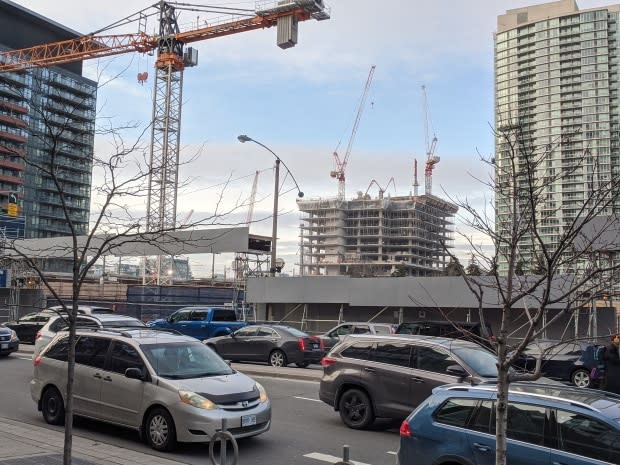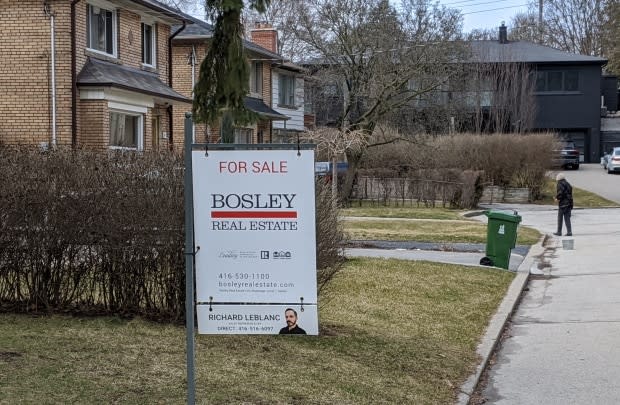Finally, good news for renters as prices are expected to lead property decline: Don Pittis
There is nothing so bad that it does not end up helping someone is the old saying, and while the COVID-19 outbreak is bad for pretty well everyone, long-suffering renters may finally get a break.
Newly unemployed gig workers and real estate investors will be collateral damage, but experts in the property market are already observing what may be an inflection point in a trend where rents have gobbled up an increasing share of young workers' incomes.
Already, there are early signs that while the supply of rental properties continues to grow, demand has slumped, even in Canada's hottest property markets, such as Vancouver and Toronto. And while the demand for housing will likely eventually resume its climb, there are reasons to expect the decline in rental prices will outlast the immediate economic effects of the coronavirus.
That's partly because the market was already showing signs of strain and was due for a readjustment. Like other sectors of Canadian real estate, the sudden economic downturn will expose faults in a rental market dependent on high levels of borrowed money.
'Swimming naked'
The quote from world-famous investor Warren Buffett that "only when the tide goes out do you see who is swimming naked" may turn out to apply in this case.
A report on Friday from property analysts Urbanation showed that while the 2020 rental market started the year strong, there were already early signs of a slowdown in rental price increases. But with the arrival of COVID-19, that slowdown transformed into an absolute rental price dip.
"As demand fell faster than supply in the second half of March, rents experienced a slight decline," said the report. "The average monthly rent in the post-COVID-19 period decreased 0.7 per cent year-over-year."

People like Hilliard MacBeth, long-time financial analyst and author of When the Bubble Bursts, have repeatedly warned that the over-leveraged Canadian property market was merely waiting for something to prick it with dangerous results for the whole economy. The Bank of Canada has said stress testing has shown Canada's financial system can take the heat.
Nonetheless, a report last week by business news service Bloomberg that Canadian property — "once safer than gold" — is heading for a reckoning was widely retweeted and sent shivers through the real estate sector.
And it is clear that not just ordinary Canadians up to their eyes in debt from a mortgage on their own home are suffering. Banks have also been deferring the mortgage payments of rental property owners, prompting objections from those who blame short-term rentals, in particular, for soaring house prices and rents.
"Should someone with four properties really be granted financial assistance?" Steve Saretsky, a Vancouver real estate agent asked in the Bloomberg report.
There are plenty of signs that a plunge in tourism has already upset the shortest of rentals of the type offered by Airbnb hosts. And mortgage deferrals are not free money if the banks continue to charge interest on the amounts landlords invested in hope of earning a profit.
Good for renters, not for landlords
But one well-respected adviser to the private sector property market has warned that pain for landlords is not over.
"All this is going to hit the rental market first," says Ben Rabidoux, who runs North Cove Advisors, an information service for the professional residential real estate market. Of course, a warning to landlords of falling rents will be good news for renters.
In one respect, Rabidoux is far less gloomy than some about the home resale market overall, saying defaults remain unlikely so long as the economic meltdown caused by COVID-19 is less than six months.

But the real estate insider says there are strong signals that just as the supply of rental properties is hitting a peak, the number of people wanting to rent is falling.
The devastated Airbnb market, down about 95 per cent, is only part of it. Unemployed gig workers and students are moving in with relatives. Immigration has slowed to a trickle.
And Rabidoux's research shows that the influx of non-permanent residents, including foreign students and people on work permits to fill gaps in Canada's tight labour market, both of whom depend on the rental market and normally about 200,000-strong, has gone into reverse.
"We have a 50-year high in rental units under construction and a 50-year high in completions of those rental units coming online," says Rabidoux. That's over and above the current flood of condos built to sell to Canadians as rental investment properties. And once underway, he says, those projects will continue to inundate the market over a two-year timeline.
While people who have bought homes to live in them will be less affected, falling rental prices will inevitably impact other parts of the market, convincing some to rent rather than buy, said Rabidoux.
"You're going to see it bleed into the resale market three, six, nine months down the road," he said.
But for anyone renting, maybe now is the time to start shopping around.
Follow Don on Twitter @don_pittis

 Yahoo Finance
Yahoo Finance 